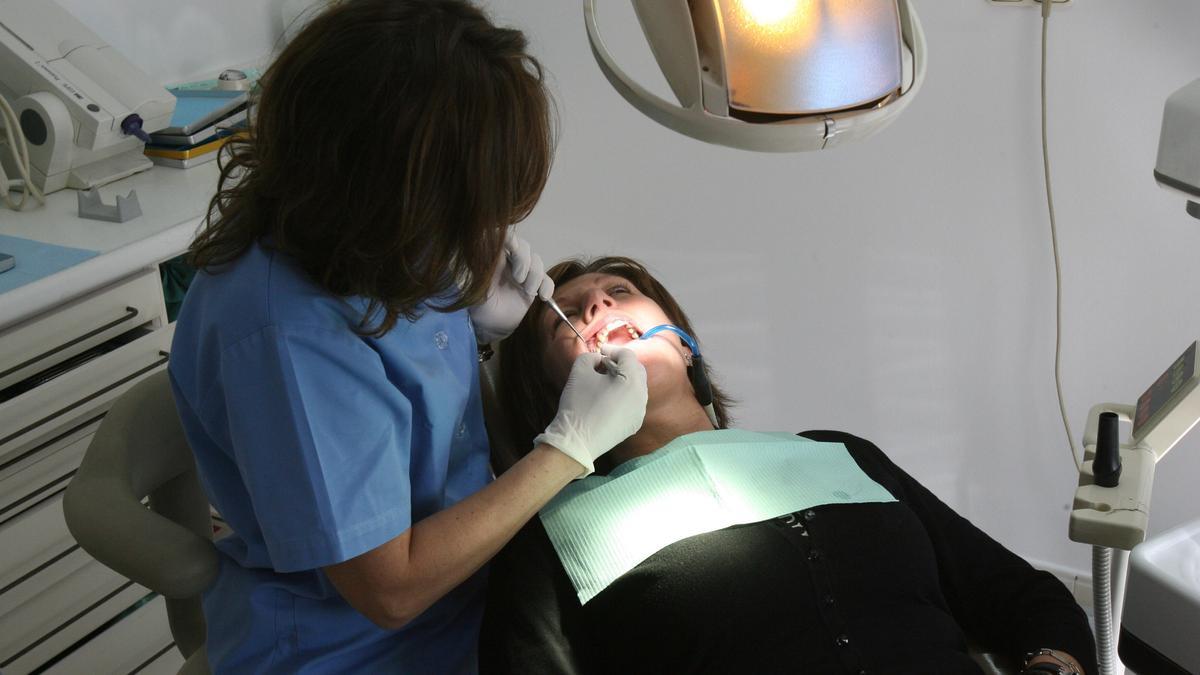The first results of the Promosalud programwhich aims to facilitate early detection in the dental office of diseases such as diabetes mellitus or high blood pressure, were announced this Wednesday in Bilbao. Early evidence indicates that dental offices could identify more than a third of cases of arterial hypertension hidden and up to half of those of prediabetes or undiagnosed diabetes.
The project, designed by the SEPA Foundation for Periodontics and Dental Implants, is endorsed by different scientific societies in the field of Dentistry and Medicine, as well as by the General Council of Dentists of Spain and various professional associations.
Dr. Eduardo Monteroprofessor at the Complutense University of Madrid (UCM) and coordinator of the analysis of PromoSalud data, which has the support of the oral health company Dentaid, has detailed that there are close to 1,500 clinics those who have joined the initiative and have been able to study the data of more than 700 patients.
Public health
The results, he continued, show “the relevant role that the dental clinic can play in screening patients.” Although they are still estimates, they conclude that, in dental clinics, between 30 and 50% of cases can be identified. of the two diseases when they are undiagnosed.
“The impact In terms of public health, these findings are immense,” says Dr. Montero, who also emphasizes that “the impact in economic terms would be tremendous, as has been observed in other countries, both in public health systems and from data from private medical insurers“.
The analysis of the first observations made in 733 patients reveals that, in 37.2% of the cases, values of undiagnosed arterial hypertension have been recorded. At the same time, the percentage of people with possible pre-diabetes or diabetes was 4% and 3%, respectively.
The hypertension
Currently, in Spain, 40% of people those who suffer from hypertension are unaware of it and it is estimated that there are 15 million adults with high blood pressure. There are also more than five million people with diabetes, of which 45% are unaware that they have it, that is, two million three hundred thousand people. 50% of people visit a dental office once a year and, however, many of them do not go to their doctor.
With SEPA calculations, In Spain there are more than 23,000 dental clinics. Only if each of them could include a dozen patients a year in the Promosalud protocol (identifying them as risk users), it would be possible to alert the health system and put you on the trail of more than two hundred thousand potential cases of undetected diabetes and/or hidden high blood pressure.
Control in consultation
Experts remember that there are new evidence that show how optimal prevention or treatment of gum diseases (gingivitis, periodontitis) is associated with better overall health,” says Dr. Nart, who recalls that patients with advanced periodontitis generally have higher blood pressure and They control their diabetes worse.
The presence of diabetes triples the risk of suffering from periodontitis and its associated complications.
The presence of diabetes triples the risk of suffering from periodontitis and its associated complications (cardiovascular diseases, nephropathies, retinopathies, etc.) are more frequent in people with periodontitis; People with diabetes tend to develop periodontitis earlier and tend to have more difficulty treating it effectively. this inflammation of the gums; In addition, periodontal treatment has been shown to improve glycemic control in people with diabetes, they add.
Socio-health relevance
The collection and detailed analysis of information derived from the hundreds of patients that are expected to be registered in the coming months may have, in the opinion of the promoters of this initiative, “great clinical and social health relevance.” The objective is to make Promosalud part of the modus operandi common in all clinics dentists of Spain.
Besides, is considered “viable and feasible” the international translation of this protocol designed by experts. In fact, concludes Dr. José Nart, president of SEPA, “there are multiple scientific societies from countries in both Europe like from Latin America who have shown interest in this initiative”.

